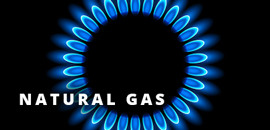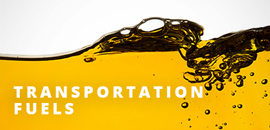PROGRESS REPORT
In fiscal 2024, the campus consumed 159.31 kBtu/sq. ft., a 9.6 percent increase of the previous year. The goal was to consume no more than 142.44 kBtu/sq. ft. The following impacted Texas Tech's energy performance:
- Degree days increased by 2 percent. Based on cumulative sum (CUSUM) analysis, this would increase the Energy Use Index (EUI) by 0.67 kBtu/sq. ft.
- Total electric consumption for the University increased by 3 percent. Increasing the EUI by 0.21 kBtu/sq. ft.
- Campus E, G and auxiliary buildings natural gas consumption decreased by 2.71 percent. Realized a 0.47 kBtu/sq. ft. reduction to the EUI.
- Cogeneration steam, provided at no cost to the university by local utility company Lubbock Power & Light (LP&L), is accounted for in the university's energy balance. However, no dollar savings are reported under the cogeneration line, as any savings would be reflected in reduced natural gas usage. Cogeneration steam reduced the EUI by 0.12 kBtu/sq. ft., a 97 percent decrease compared to the prior year. Although it was included in the prior year's report, fiscal 2023 marks the last year LP&L will operate the cogeneration station, though they did utilize it in September of fiscal 2024. As previously mentioned, an increase in natural gas consumption is expected in fiscal 2024 due to increased steam production compensating for the loss.
- Natural gas consumption at Central Heating and Cooling Plant 1 (CHACP 1) rose by 20.8 percent, contributing to an 18.52 kBtu/sq. ft. impact on the EUI.
- With electricity costs uncertain for much of the fiscal year, Operations Division strategically prioritized the use of steam chillers, which have a greater impact on the EUI (11.4 kBtu/sq. ft.) compared to electric chillers. Steam-driven chiller operations increased by 88 percent, while electric chiller operations decreased by 68 percent. Additionally, chilled water tonnage increased by 10 percent.
- Although campus steam demand decreased by 1.34 percent, the loss of cogeneration steam raised the EUI by 4.60 kBtu/sq. ft. In addition, condensate and steam leaks in the steam condensate tunnel system (averaging 35 gallons per minute (GPM) in condensate loss for the year), raised the EUI by 1.41 kBtu/sq. ft.
- Chilled water production efficiency improved by 28 percent, allowing CHACP 1 to produce 10 percent more tonnage with 13.8 percent less water. This efficiency gain reduced the EUI by 3.23 kBtu/sq. ft.
- Chilled water losses in the tunnel system averaged 4.21 GPM for the fiscal year, a 100 percent increase over the prior year. While the EUI impact is negligible, the overall cost increase is estimated at $22,000 compared to fiscal 2023.
- Freeze Protection Protocol: If outside air drops below 32 degrees, Texas Tech turns on air handlers and pumps to protect coils and pipes from freezing. The cost of this practice in fiscal 2024 was $261,668. Freeze protection increased the EUI by 1.16 kBtu/sq. ft.
- Recognized by the Association for the Advancement of Sustainability in Higher Education as a Sustainability Tracking, Assessment and Rating System (STARS) Silver Institution based on its reported accomplishments in campus sustainability.
- Free Cooling Project at CHACP 1: The Water Side Economizer provided more than 3 million tons of free cooling (6.7 percent of total chilled water produced) this fiscal year, an estimated savings of $56,673.
- Back Pressure Turbine at CHACP 1 supplied 22.4 percent of CHACP's electrical use for a cost savings of $369,318.
- Received free cogeneration steam from utility provider, saving the university $3,421.
- Energy Management set a target to identify $750,000 in cost avoidances for the fiscal year. By the end of the year, the department exceeded this goal, identifying $977,000. Of this amount, $50,000 was allocated to fund energy-saving measures, yielding $97,000 in immediate savings. The annualized savings from these projects are expected to reach $200,000.
- Modified the schedule for Air Handler 1 at the Architecture Building, which was running 24/7 due to an IT server. After relocating the server to the Technology Building, the air handler schedule was adjusted to the campus standard, resulting in savings of $39,942.
- Replaced the inoperable variable frequency drive (VFD) on Air Handler 6 at the Administration Building, which had been operating in "hand" mode. The repair saved $4,236.
- Replaced the inoperable VFDs on Air Handlers 13 and 19 at the Library Building, which had been running continuously. This action saved $4,318.
- Added a schedule point for Air Handler 11 at Reese 555, which had been running continuously. The change resulted in $1,639 in savings.
- Replaced inoperable VFDs on Air Handlers 1 and 2 at the Law Building, which had been operating in "hand" mode, yielding $8,636 in savings.
- Corrected the programming for Air Handlers 1 and 3 at Mechanical Engineering South, which were not receiving "off" commands as scheduled. This adjustment saved $4,306.
- Identified faulty sensors on Air Handlers 1 and 2 at Mechanical Engineering South, causing the fans to run continuously at 100 percent, over-pressurizing the duct system. Replacing the sensors saved $3,172.
- Discovered that the heating water pump at Mechanical Engineering South was running when it should have been off according to the control sequence. Replacing the faulty current transformer saved $2,115.
- Replaced the inoperable VFD on Air Handler 3 at the Art 3D Building, which had been operating in "hand" mode. This repair saved $511.
- Partnered with utiliVisor to analyze the energy consumption at Human Sciences and the Human Sciences Tower. Correcting the programming on Air Handlers 2, 3 and 4 resulted in $1,667 in savings.
- Collaborated with building coordinators at Civil Engineering and Terry Fuller Petroleum Engineering to adjust air handler schedules to match building occupancy, resulting in $14,095 in savings.
- Corrected programming for the heating water pump at Bledsoe Residence Hall, which had been running outside of the scheduled operation, saving $528.
- Corrected a faulty binding for outdoor air sensor at Drane Hall keeping the units from operating as needed based on outdoor air temperature.
- Perform preventative maintenance on the following meters: Hulen Hall — chilled water, Housing Services — chilled water and condensate, Weymouth — chilled water, Murray — chilled water, Experimental Sciences II — steam, Art 3D — condensate, Human Sciences — chilled water, and University Recreational Center — chilled water (2x).
- Installed a new heating water pump at Law Lanier.
- Installed meters at the following buildings: Marsha Sharp — chilled water, Civil Engineering — chilled water, Carpenter Wells — chilled water, and Weymouth — chilled water.
- Replaced outside air damper on Air Handler 3 at Texas Tech Plaza.
- Identified that the chilled water pump at Wall-Gates Residence Hall was running at 100 percent continuously due to a faulty differential pressure sensor.
- Made repairs and improvements at the following buildings condensate systems to increase condensate return rate back to the Central Heating and Cooling Plant: Grounds Building, Biology, Art 3D, Goodard, Rawls College of Business Administration (COBA), Human Science, Human Science Tower, Physical Plant and Science.
- Compiled a database of all water fountains in education and general use spaces, including a subset of bottle fillers only.
- Replaced a reheat valve on a variable air volume (VAV) at Reese 555.
- Building automation system identified a fault in the heating water system at Agriculture Sciences. Steam valve was found to be leaking by. Project was submitted and completed to replace steam valves and actuators and update controls to electronic.
- Identified and corrected a steam valve at Music that was not wired correctly.
- Replaced a chilled water pump at Holden Hall.
- Identified and corrected an alarm on the controller for the heating water system at Housing Services.
- A failed pump was identified on a condensate return unit, which caused flooding in a mechanical room at Rawls COBA. The pump was repaired, resulting in approximately 15 GPM of condensate being returned to the tunnel.
- Identified that air handlers at Chemistry were not properly cooling the building due to the outside air sensor showing to be unreliable. Connection to the sensor was restored and thermal comfort improved.
- Reviewed the building automation system graphics package for the Academic Science Building and submitted preferred outcome to Facilities, Planning and Construction.
- Installed Gensis Air CenterPoint Panels at the Child Development Center in June to eliminate volatile organic compounds (VOCs) and viable airborne microorganisms, improving indoor air quality. Through monitoring and testing, it will later be determined if there is an opportunity to decrease the prescribed or regulated use of outdoor air in the building for dilution.
- Installed a new VAV for Room 101 at Texas Tech Plaza to better provide heating and cooling to the space.
- Replaced a chilled water valve for Air Handler 1 at Texas Tech Plaza.
- Installed VFDs for Air Handlers 2, 3, 4 and 6 at Texas Tech Plaza. Estimated annual savings is $15,000.
- Installed a current transformer for a relief fan at Architecture to monitor and control the speed.
- Installed water bugs on Air Handlers 1, 2 and 3 at Art 3D to alert the Control Center of busted coils.
- Secured steam to campus air handlers during Summer 2024 to eliminate simultaneous heating and cooling which would decrease efficiency.
- Submitted 110 work orders for discrepant air handler operations, faulty HVAC equipment and buildings’ chilled water return temperature setpoints.
- Continued the upgrade of HVAC controls at Math, Animal Food Science, Music and Psychology. Projects will continue through fiscal 2025.
- Collaborated with Hospitality Leadership to adjust air handler schedules to match building occupancy, resulting in $3,262 in savings.
- Made repairs and improvements at the following buildings condensate systems to increase condensate return rate back to the Central Heating and Cooling Plant: Sneed Residence Hall, University Recreational Center, Hulen Clements Residence Hall, Carpenter Wells Residence Hall and Coleman Residence Hall.
- Chem-Aqua to circulate cleaning chemicals through a heat exchanger at Honors Residence Hall to increase the efficiency of the exchanger.
- Audited the chilled water system at Stangel Murdough and found the chilled water return valve stuck open returning below 52 degrees to the tunnel. Actuator was found disengaged. After engaging the actuator, chilled water return temperature increased above 55 degrees.
- Audited the University Recreational Center and identified the need to upgrade pneumatic steam valves, controls, dampers and VFDs to increase the efficiency of the HVAC system and controls and improve occupant comfort.
- Instituted monthly energy reviews with University Student Housing (USH) to report current trends in utility usage in all areas of USH. Reported specific equipment discrepancies.
- Instituted quarterly energy reviews with Athletics, Student Union, Student Recreation Center and United Supermarket Arena to report current trends in utility usage in all areas of their buildings. Reported specific equipment discrepancies.
- In an effort to reduce chilled water consumption across three high-rise residence halls, the chilled water differential setpoint was set to 5 pounds per square inch (PSI). The realized savings was $36,000.
- Replaced all pneumatic controls and valves for the chilled water system at Carpenter Wells to increase the efficiency of the chilled water system.
- Assisted the Housing department in researching the capability of locking down thermostats in Talkington Residence Hall and establishing setpoints. Energy savings will be measured throughout fiscal 2025.
- Generated 27 HVAC work orders for specific equipment discrepancies for Athletics, United Spirit Arena, Innovation HUB, Student Wellness and Student Recreation Center.
- Performed steam/condensate audit of condensate receivers on campus to identify buildings that have the condensate return water redirected to drain. Work orders were submitted for each building identified.
- Performed five interior lighting audits: Ag Science, Mechanical Engineering North, Terry Fuller Petroleum, Innovation HUB and Livermore.
- Performed five plumbing audits: Ag Science, Mechanical Engineering North, Terry Fuller Petroleum, Innovation HUB and Livermore.
- Conducted weekly audits of the exterior lighting zones across Main Campus. The audits resulted in corrections by Operations or the estimation of larger projects to address exterior lighting needs and concerns. Additional projects are under consideration for the upcoming fiscal year.
- Performed 19 HVAC audits: Human Science; Human Science Tower; Agriculture Education; Humanities; Education; Agriculture Science; Food Tech; Early Head Start; Livestock Arena; Art 3D; Engineering Tech Lab; Classical; Modern; Language and Literature; Media Communications; Engineering Center; Rawls College of Business; Bayer Plant Science South; Livermore; Chemical Engineering; and Drane.
- In the fall, while steam was on to the campus, the steam/heating water system controls were audited to identify whether all heating water systems were following the Campus Standard lock-out program.
GOALS
Through identification of energy-saving measures, Texas Tech University (TTU) will look to measure and analyze campus energy consumption and formulate strategies to create resource abundance.
| Utility | Target Year | Benchmark Year | Percentage Goal |
|---|---|---|---|
| Water | 2025 | 2019 | 2 |
| Electricity | 2025 | 2020 | 2 |
| Transportation Fuels | 2025 | 2019 | 2 |
| Natural Gas | 2025 | 2019 | 2 |
STRATEGY FOR ACHIEVING GOALS
- Plan to initiate a pilot project to install occupancy sensors, integrating them with lighting and HVAC controls. This will enable setback modes when areas are unoccupied, contributing to energy efficiency.
- Plan to install the OpenBlue AI system in a campus building to advance the university's Smart Campus initiative, leveraging AI for improved building operations and energy management.
- Utilize the Water Side Economizers at CHACP 1 to achieve electric and natural gas savings when outside air temperature allows.
- Partnership between CHACP 1 and Energy Management to monitor Human Science Building performance and determine how building and plant efficiencies correlate.
- Continue to repair steam and condensate leaks to regain efficiencies in the production of steam for heating the campus.
- Create a five-year plan for upgrading HVAC systems, lighting and controls.
- Institute monthly reviews of the Equipment Down Report and Software Override Report with goals to prioritize equipment repairs that are energy intensive.
- Develop a Sustainability Master Plan to administer and provide guidelines for future sustainability efforts.
- Utilize dashboards and alarms created in eSight to assist with persistent commissioning and monitoring of building utilities.
- Perform energy assessments (building models and audits) for all priority facilities.
- Identify HVAC exceptions that can be better served by supplemental units.
- Continue upgrading metering systems for electricity, steam, natural gas, chilled water, irrigation and domestic water, and integrating into eSight Energy Accounting System to improve energy monitoring and identification of excursions. Select meter data will be connected to utiliVisor for the purpose of balancing loads at CHACP 1.
- Work with Facilities Planning and Construction (F, P and C) to ensure meters are installed and integrated into eSight and utiliVisor during the construction process.
- Perform 38 building audits to identify energy efficiency measures and update Building Energy Management Profiles.
- Perform 38 steam audits to identify defective steam valve and actuators.
- Systematically recommission chilled water mixing valves to increase chilled water delta T to greater than 16 degrees.
- Audit steam distribution system.
- Prepare monthly or quarterly energy reports for all auxiliary units.
- Identify and document sequences of operation for all HVAC systems. Once identified, put a schedule in place for the Control Center to regularly monitor and review for discrepancies. If discrepancies are noted, appropriate actions will be reviewed and followed through.
- Audit the building automation system alarms with intention to create alarm parameters and priorities.
- Continue HVAC and controls assessment with third party vendor at Human Sciences and Human Sciences Tower. Goal is to identify 35 percent reduction in energy; savings will be reported in fiscal 2025 report.
- Identify energy efficiency measures where sum is equal to or greater than $750,000 in cost avoidances.
- Continue supporting student-led organizations in their sustainability efforts.
IMPLEMENTATION SCHEDULE
Texas Tech University is transitioning to a persistent commissioning model for managing ongoing projects and preventative maintenance. By utilizing existing systems, implementing a new project/service work management platform and exploring AI technology, this shift supports the goal of becoming a "smart campus."
Operations is working on a 10-year strategic plan aimed at enhancing campus efficiency through annual initiatives and key performance indicators. This fiscal year's focus is on auditing and planning the transition from reactive to proactive operations. By collaborating with other departments, audit insights will help prioritize upgrades in HVAC controls, lighting, indoor air quality and building comfort, targeting a minimum of 20 percent energy savings.
To support this shift, Texas Tech will evaluate its current building automation systems and identify the necessary training and software for the proactive approach. The Energy Management department will conduct HVAC audits across 37 buildings, aiming to identify cost avoidances totaling $750,000 for the fiscal year.
AGENCY FINANCE STRATEGY
Each year, Deferred Maintenance and Utility Funds are budgeted to the extent possible. The audits completed this fiscal year are vital to updating the Deferred Maintenance list.
EMPLOYEE AWARENESS PLAN
Texas Tech will use the TTU Energy Management webpage and other campus media outlets to share updates on energy-saving measures being implemented.
The Energy Management department hosts a monthly Energy Committee meeting with Operations Division staff to discuss energy-saving opportunities and report realized savings. This meeting forms the foundation of Texas Tech's Energy Management program, fostering collaboration with the Central Heating and Cooling Plant, Facilities Systems and Environmental System Maintenance teams.
Additionally, the Energy Management department holds monthly meetings with auxiliary customers to review persistent commissioning, energy consumption and cost trends. They assist with identifying and planning energy-saving opportunities within these facilities.
Texas Tech will also utilize software like eSight Energy Accounting System and utiliVisor to showcase energy consumption data for campus buildings.
The Sustainability Office also highlights energy efficiency improvements and sustainability efforts through its newsletter, raising awareness and sharing resources with the campus community. They also partner with student organizations, like the Climate Center and Raider Recycling, to support sustainability events and programs.
The Sustainability Office is developing an employee ambassador program to promote engagement in initiatives like the Lights Out campaign and Green Office Program. They also partner with Procurement Services for the annual Red Raider Trader event, which reduces waste and saves funds by allowing departments to drop off, pick up or swap items, open to faculty, staff and students.





